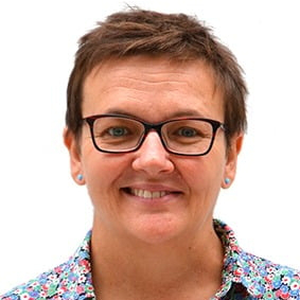
Professor Cynthia Whitchurch
Singapore Centre for Environmental Life Sciences Engineering (SCELSE).
OPENING KEYNOTE SPEAKER
THEME: Understanding The AMR Burden
PRESENTATION TITLE: Leveraging alternate bacterial lifestyles to combat AMR
Professor Cynthia Whitchurch FAA obtained her BSc (Hons I) in 1989 and her PhD in 1994 from the University of Queensland. Her research focusses on understanding alternate bacterial lifestyles including how bacteria survive antibiotic treatment through cell wall deficiency, how bacteria build biofilms, and how they co-ordinate collective behaviours. The outstanding quality of her research has been recognised through prestigious fellowships and awards. In 2019 she was elected as a Fellow of the Australian Academy of Science for her discoveries of novel roles for extracellular DNA in biofilms.

PROFESSOR MARK BLASKOVICH
Institute for Molecular Bioscience, The University of Queensland.
INVITED SPEAKER
THEME: Alternative Therapies and Drug Discovery
PRESENTATION TITLE: Discovering new classes of antimicrobials by a crowdsourcing approach
Prof. Mark Blaskovich is an ‘antibiotic hunter’ and Director of Translation for the Institute for Molecular Bioscience at The University of Queensland, as well as Director of the ARC Industrial Transformation Training Centre CEAStAR and the antibiotic crowdsourcing initiative CO-ADD. A medicinal chemist with 15 years of industrial drug development experience, since 2010 he has been developing new antibiotics, non-antibiotic therapies and diagnostics to detect and treat resistant bacterial and fungal infections, including multiple industry collaborations focused on antimicrobial resistance.

PROFESSOR Wolf-Dietrich Hardt
Institute of MicrobiologyETH Zurich, Switzerland
CLOSING KEYNOTE SPEAKER
THEME: Alternative Therapies and Drug Discovery
PRESENTATION TITLE: Antibiotic resistance crisis: lessons from basic Infection Biology
Wolf-Dietrich Hardt was trained as a biochemist. He studies how pathogenic bacteria interact with their hosts and its microbiota, how these interactions evolve and how this affects virulence and antibiotic survival.
Wolf-Dietrich Hardt's laboratory develops new concepts in infection biology and uses the diarrheal pathogen Salmonella Typhimurium and E. coli as the main models for investigation. These models provide excellent tools for genetic manipulation of the bacterium, elaborate tissue culture models, superb clinical strain collections, and a large number of clinical cases per year. The Hardt lab develops mouse models to study bacterial gut colonization, microbiota-mediated colonization resistance, antimicrobial defenses of the intestinal mucosa and microbial population dynamics in the mammalian gut. We are interested to learn how this affects virulence evolution, persistence and the emergence of strains with expanded antibiotic resistance profiles.
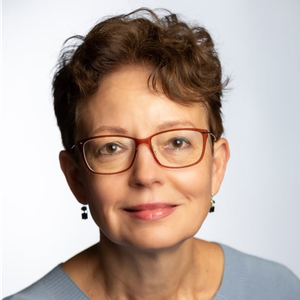
PROFESSOR Ellen L. Zechner
Institute of Molecular Biosciences, University of GrazGraz, Austria
KEYNOTE SPEAKER
THEME: Biofilms and Microbiome
PRESENTATION TITLE: Ecological impacts of commensal genotoxins in the gut ecosystem
Ellen Zechner’s laboratory at the University of Graz, Austria is interested in bacterial pathogenesis and mechanisms underlying interspecies communication. Recent research has focused on the human-microbe interface. In the gut ecosystem complex interactions are often regulated by secondary metabolites and genetically encoded small molecules secreted by mutualistic and pathogenic microorganisms. The laboratory aims to discover structures, biosynthetic pathways and biological activities of these types of naturally produced molecules. Microbiology, small molecule chemistry, cell biology, mouse models, and genomics approaches are used to understand their role in biology and medicine.
Recent work characterizes the antimicrobial, mutagenic and disease-causing potential of microbiota-derived genotoxin tilimycin secreted by Klebsiella spp. In the context of a complex gut community, tilimycin depletes the microbiota, drives mutational emergence of antibiotic resistance in co-resident bacteria and opportunistic pathogens alike, and promotes DNA damage, colorectal stem cell mutations and disease emergence in the colon. Current work explores relevance of til+ Klebsiella to human health at various life stages and aims to understand regulation of genotoxin production in the complex gut ecosystem.

PROFESSOR CRAIG MACLEAN
Department of Biology, University of Oxford
KEYNOTE SPEAKER
THEME : Plasmid transmission and Evolution of Resistance
PRESENTATION TITLE: Evolutionary Drivers of Mobile AMR: Insights from Colistin Resistance
Professor Craig Maclean completed a PhD at McGill University and at a postdoc at Imperial College in microbial evolutionary ecology before moving to Oxford in 2007. The main focus of research in my lab since 2012 has been studying the evolutionary drivers of antibiotic resistance in pathogenic bacteria. We are interested in addressing broad questions such as “How does antibiotic treatment drive the spread of resistance?”, “How is resistance stabilized in pathogen populations?” and “What are the genomic drivers of resistance?”. We address these questions using a combination of lab experiments, clinical trials, and computational approaches. Genomics is key to our research across these areas. My lab’s work on resistance has been supported by the ERC, Wellcome, and UKRI.

PROFESSOR DENA LYRAS
Biomedicine Discovery InstituteMonash University
KEYNOTE SPEAKER
THEME : Vaccines, Alternative Therapies, and Drug discovery
PRESENTATION TITLE: Non-antibiotic strategies to mitigate enteric infections
Professor Dena Lyras is the Deputy Director of the Biomedicine Discovery Institute at Monash University in Australia. Her laboratory is focussed on enteric pathogens, particularly the clostridia and those involved in antibiotic-associated diarrhoea in humans and animals, and she uses genetic approaches to understand how these microbes harness regulatory and virulence factors to interact with the host and cause disease. Antibiotic resistance and DNA mobility are also research areas of focus. In collaboration with industry and academic partners, her laboratory is developing immunotherapeutics and small molecules to prevent and treat enteric infections. She was awarded an Australian Research Council Future Fellowship from 2012-2016 and an Australian Research Council Laureate Fellowship in 2022.

Associate Professor BO SHOPSIN
Department of Medicine and MicrobiologyNYU Grossman School of Medicine, USA
KEYNOTE SPEAKER
THEME: Mechanisms of Drug Resistance
PRESENTATION TITLE: Staphylococcus aureus adaptation during clinical infection
Bo received a BS in Biology from Indiana University and an MD and PhD from New York University School of Medicine. For his PhD, he developed single-locus sequence typing (“spa typing”) for Staphylococcus aureus in Barry Kreiswirth’s lab. After medical school, he completed an internal medicine residency and fellowship in Infectious Diseases at the New York University Langone Health (NYULH). During fellowship, he completed a postdoc in molecular genetics in Richard Novick’s lab studying the molecular epidemiology of mutations in agr, a quorum-sensing regulator of virulence, in natural populations of S. aureus. He joined the faculty of NYULH in 2007, where he currently leads the Antimicrobial Resistance Program and runs a research lab studying the ways in which S. aureus adapts to human hosts during the course of clinical infection.

PROFESSOR DAVID PATERSON
Director, ADVANCE-ID of Saw Swee Hock School of Public HealthNational University of Singapore
INVITED SPEAKER
THEME: The AMR Burden – Epidemiology, Population genetics, and Horizontal gene transfers
PRESENTATION TITLE: The Global AMR Burden – Can Antibiotic Development keep up with New Mechanisms of Resistance?
Professor Paterson directs ADVANCE-ID (ADVANcing Clinical Evidence for Infectious Diseases) at Saw Swee Hock School of Public Health. ADVANCE-ID is a clinical trials network comprising more than 40 hospitals across Asia. This network is jointly funded by the Wellcome Trust and a number of Singaporean institutions with an aim to conduct clinically important trials in the field of antimicrobial resistance (AMR). This comprises trials of antibiotics, diagnostics and prevention strategies. He is also an Honorary Professor at the University of Queensland and has more than 600 peer-reviewed publications predominantly in the area of AMR. His research focuses on the molecular and clinical epidemiology of infections with antibiotic-resistant organisms, with the intent of translating knowledge into optimal prevention and treatment of these infections. Multi-country clinical trials are the major component of his research portfolio, and the predominant focus of ADVANCE-ID.

PROFESSOR Jean-Marc GHIGO
Institut Pasteur, Université Paris-CitéGenetics of Biofilms Laboratory, Paris, France
INVITED SPEAKER
THEME: Biofilms and Microbiome
PRESENTATION TITLE: Causes and consequences of Biofilm tolerance to antibiotics
Jean-Marc Ghigo is currently professor at Institut Pasteur, Paris, head of the Genetics of Biofilms Laboratory in the Department of Microbiology. Using bacterial genetics approaches and in vitro and in vivo models, his laboratory investigates fundamental aspects of community-associated functions and the biological resources used by commensal or pathogenic bacteria to operate within biofilms. His research addresses 3 main questions: How do bacteria form biofilms? What properties emerge from bacterial communities? How can we limit or control biofilm formation?
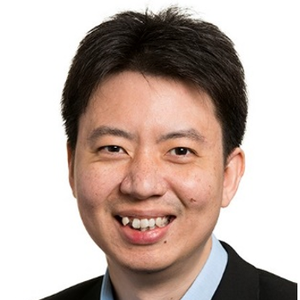
PROFESSOR Direk Limmathurotsakul
Mahidol-Oxford Tropical Medicine Research UnitMahidol University, Thailand
INVITED SPEAKER
THEME: The AMR Burden – Epidemiology, Population genetics, and Horizontal gene transfers
PRESENTATION TITLE: Surveillance for actions at facility and national levels in Thailand
Direk is the Head of Microbiology at Mahidol-Oxford Research Unit (MORU) and Professor at Mahidol University, Thailand and at University of Oxford, UK. He led a series of clinical and epidemiological studies on melioidosis, sepsis and antimicrobial-resistant bacterial infections in low and middle-income countries. His team developed an offline, open-access and easy-to-use application, called AMASS, that allows a hospital to perform data analysis and generate AMR surveillance reports automatically and independently. The system has been adopted by the Ministry of Public Health and implemented in 127 public hospitals in Thailand.

Associate Professor Yann Boucher
Saw Swee Hock School of Public Health and Singapore Center for Environmental Life Sciences EngineeringNational University of Singapore
INVITED SPEAKER
THEME : The AMR Burden – Epidemiology, Population genetics, and Horizontal gene transfers
PRESENTATION TITLE: Culture-enriched metagenomics enables efficient low-cost recovery of antimicrobial resistant pathogens genomes from stool, wastewater and coastal waters
Yann studies the life cycle of enteric bacterial pathogens, from their residence in the human microbiome to their dispersal and survival outside the body. He investigates the evolution of new pathogenic variants during this cycle, such as the acquisition of antimicrobial resistance and novel virulence factors. He co-leads the anaerobic culturomics facility at NUS and the public health program on Climate, Environment and Health. His teams study the effect of polluted water on the gut microbiome in Bangladesh, hunts for phages of human gut bacteria and develops methods for describing low-abundance pathogens in the environment.

ASSOCIATE PROFESSOR HONGBAEK CHO
Department of Biological SciencesSungkyunkwan University, South Korea
INVITED SPEAKER
THEME: Mechanisms of Drug Resistance
PRESENTATION TITLE: Secretin channel-interacting proteins antibiotic influx through the outer membrane during type IV pili assembly in Pseudomonas aeruginosa.
Dr Cho did his BSc at Seoul National University and PhD at Cornell University. Then he did his postdoctoral training at Harvard Medical School. Currently, he serves as an associate professor at Sungkyunkwan University, where his research focuses on the assembly and integrity maintenance of Gram-negative bacteria envelopes.
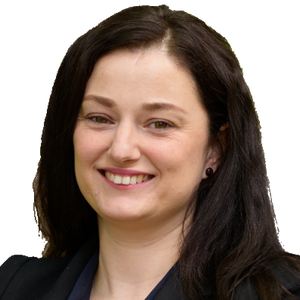
ASSOCIATE PROFESSOR AMY CAIN
ARC Future Fellow at School of Natural ScienceMacquarie University, Australia
INVITED SPEAKER
THEME: Vaccines, Alternative Therapies and Drug Discovery
PRESENTATION TITLE: Antibiotic resistance sharing and heightened stress tolerance in co-infecting hospital pathogens
Amy K. Cain is an ARC Future Fellow and Associate Professor of Molecular Biology in the School of Natural Sciences and the ARC Centre of Excellence in Synthetic Biology at Macquarie University, Sydney. She has worked in academic groups, hospital labs and in the pharmaceutical industry across Australia, Cambridge and Oxford in the UK, Malawi (sub-Saharan Africa), and Boston (USA). Her current research focuses on developing new-to-nature antibiotics and uncovering bacterial stress response systems in hospital pathogens using functional genomic techniques. She is the founder and Director of the Galleria Research Facility, an ethical and cost-effective in vivo model for testing pathogenicity of microbes, and toxicity and efficacy of new drugs.
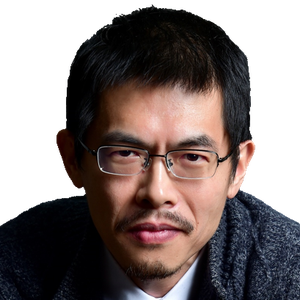
ASSISTANT PROFESSOR Jia-Feng Liu
Center of Infection Biology, School of Basic Medical SciencesTsinghua University
INVITED SPEAKER
THEME: Mechanisms of Drug Resistance
PRESENTATION TITLE: Effect of Tolerance on the Evolution of Resistance
Dr. Liu Jia-Feng is an assistant professor in the center of infection Biology at Tsinghua University since 2021. Dr. Liu obtained his bachelor degree in engineering mechanics from Shanghai Jiaotong University, and PhD in Biochemistry and molecule biology from Peking University. He worked with Professor Nathalie Balaban at the Racah institute of physics, The Hebrew University from 2016 to 2020. Jiafeng’s laboratory primarily investigates bacterial tolerance against antibiotics, both singularly and in combination. They aim to integrate laboratory models with clinical data to understand the principles underlying the evolution of drug tolerance and resistance in pathogens, and develop treatment strategies.
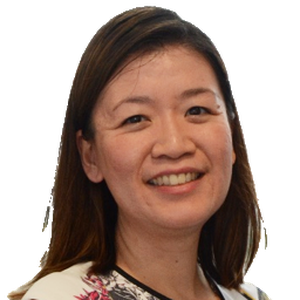
ASSISTANT PROFESSOR CATHERINE ONG
Infectious Diseases Translational Research ProgrammeDepartment of Medicine, National University Singapore
INVITED SPEAKER
THEME: Alternative Therapies and Drug Discovery
PRESENTATION TITLE: Modulating TB immunopathology to improve clinical outcomes
Dr Catherine W.M. ONG MBBS MRCP(UK) MMed (Int Med) PhD FAMS FRCP is Assistant Professor with the Department of Medicine at the Yong Loo Lin School of Medicine, Principal Investigator in iHealthtech NUS, Senior Consultant with the Division of Infectious Diseases in the National University Hospital and Visiting Consultant at the Singapore Tuberculosis Control Unit with both research and clinical interests in Tuberculosis. She serves in international journal editorial boards; as Associate Editor of the leading European Respiratory Journal, and Deputy Editor of the flagship International Journal of Tuberculosis and Lung Diseases. Her other portfolios include: Secretary to the ESCMID Study Group for Mycobacterial Infections (ESGMYC) and expert reviewer to international funders such as the Wellcome Trust, UK MRC and ESCMID.

DR. JOHN CHEN
National University of Singapore, ID TRP, Microbiology and Immunology.
INVITED SPEAKER
THEME : Plasmid transmission and Evolution of Resistance
PRESENTATION TITLE: Pathogenicity islands uncouple prophages from intra-host competition to promote their reproductive success during polylysogeny
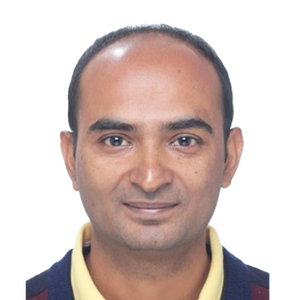
DR. NIMESH POUDYAL
International Vaccine Institute, South Korea.
INVITED SPEAKER
THEME: Industry Perspectives on AMR Solutions
Nimesh is a Laboratory Medicine expert with an MD in Clinical Microbiology and Infectious Disease, along with a Fellowship in Clinical Research and Development. He currently serves as a Research Scientist leading the Antimicrobial Resistance (AMR) Department at the International Vaccine Institute headquarters in Seoul, Korea.
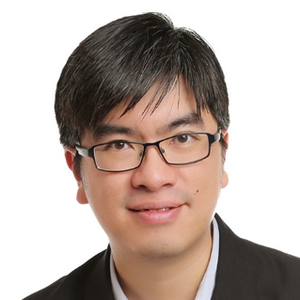
ASSISTANT PROFESSOR SHAM LOK TO CHRIS
Infectious Diseases Translational Research Programme, National University of Singapore.
INVITED SPEAKER
THEME : Vaccines, Alternative Therapies, and Drug discovery
PRESENTATION TITLE: Genetic interaction landscape of a pathogenic bacterium
Dr. (Chris) Lok-To Sham is an Assistant Professor in the Infectious Diseases Translational Research Programme (IDTRP) and the Department of Microbiology and Immunology at the National University of Singapore. He uncovered a widely conserved ATP-binding cassette transporter, FtsEX, that controls peptidoglycan hydrolysis during cytokinesis. During his postdoctoral training, he demonstrated that MurJ is the long-sought transporter of peptidoglycan. Chris started his research group in 2017. His research program aims to elucidate how CPS is produced and how its synthesis is coordinated with assembling other cell envelope layers. Using a multi-disciplinary approach, his research group addressed fundamental questions regarding CPS synthesis and regulation, investigated the role of surface glycan in host-pathogen interactions, and developed innovative techniques to engineer glycans genetically. Chris is the recipient of the National Research Foundation Fellowship, Class of 2019. He is the Vice President of the Singapore Society of Microbiology and Biotechnology and the Research Director of the Infectious Diseases Translational Research Programme at Yong Loo Lin School of Medicine, National University of Singapore.
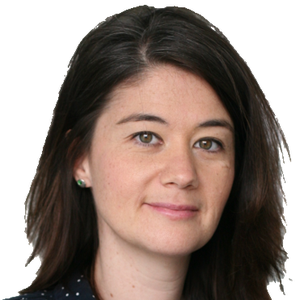
Dr. Olaya Rendueles
Microbial Ecology and Evolution Group at Laboratory of Microbiology and Molecular Genetics (LMGM) UMR 5100 CNRSCenter of Integrative Biology (CBI), Toulouse, France
INVITED SPEAKER
THEME : The AMR Burden – Epidemiology, Population genetics, and Horizontal gene transfers
PRESENTATION TITLE: Determinants of Plasmid Transfer Rates in Klebsiella Pneumoniae
Dr Olaya's research focuses on the mechanisms of microbial social interactions and how the latter shapes adaptation and evolution, whilst leveraging genetics, molecular microbiology, population biology and comparative genomics. Her team studies the impact of the capsule on bacterial adaptation. We showed that the capsule is a main driver of both competitive outcomes and shapes the rate of gene transfer across bacterial cells. We integrate different time scales (direct competition, microevolution and macroevolution) and different levels of organization, from the single-cell level to mixed communities, including interkingdom interactions.

DR. Niranjan Nagarajan
Genome Institute of Singapore and National University of Singapore
INVITED SPEAKER
THEME: Biofilms and Microbiome
Dr. Nagarajan is Associate Director and Senior Group Leader in the Genome Institute of Singapore, and Associate Professor in the Department of Medicine and Department of Computer Science at the National University of Singapore. His research focuses on developing cutting edge genome analytic tools and using them to study the role of microbial communities in human health. His team conducts research at the interface of genetics, computer science and microbiology, in particular sing a systems biology approach to understand host-microbiomepathogen interactions in various disease conditions. Dr. Nagarajan received a B.A. in Computer Science and Mathematics from Ohio Wesleyan University in 2000, and a Ph.D. in Computer Science from Cornell University in 2006 (Advisor: Prof. Uri Keich). He did his postdoctoral work in the Center for Bioinformatics and Computational Biology at the University of Maryland working on problems in genome assembly and metagenomics (Advisor: Prof. Mihai Pop).

DR. ANDREW M. EDWARDS
DEPARTMENT OF INFECTIOUS DISEASE, FACULTY OF MEDICINE IMPERIAL COLLEGE LONDON, UNITED KINGDOM.
INVITED SPEAKER
THEME: Mechanisms of Drug Resistance
PRESENTATION TITLE: Polymyxin susceptibility in the host context
Dr Edwards did his BSc at University College London and PhD at the University of Bristol, before post-doc positions at the University of Minnesota, Novartis Vaccines in Italy and the University of Bath back in the UK. He now leads a group at Imperial College London, where he studies antibiotic mode of action, mechanisms of resistance and the impact of the host environment on drug susceptibility.
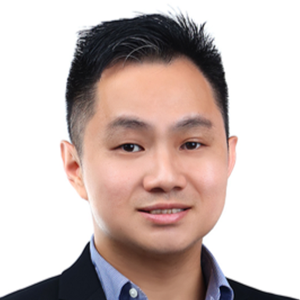
DR. TECK HUI TEO
A*STAR Infectious Diseases Labs
INVITED SPEAKER
THEME: Alternative Therapies and Drug discovery
PRESENTATION TITLE: Using host-direct therapy to target unique myeloid-bacterial interactions between classical and hypervirulent Klebsiella pneumoniae infection in the respiratory tract to alleviate immune pathology
Teck-Hui obtained his PhD from the National University of Singapore under the tutorage of Prof Lisa Ng and Prof Laurent Renia in Singapore Immunology Network (SIgN) focusing on understanding the immunopathogenesis during virus-parasite co-infection. He did a 3-years oversea fellowship with Sansonetti’s and Schnupf’s lab in Institute Pasteur where he gains the expertise to work with gut infection and microbiomes/pathobionts colonization models in germfree and conventional setting for mechanistic study. He joined A*STAR ID Labs in 2021 and established the mucosal infection lab in the institute in 2022. His current research interest focus on deciphering the mucosal pathogenesis of Klebsiella pneumoniae infection.
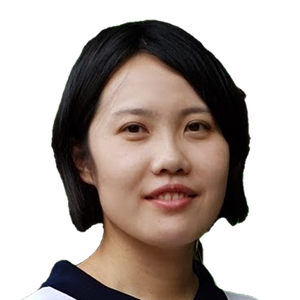
DR. QIAO YUAN
School of Chemistry, Chemical Engineering and Biotechnology (CCEB), Nanyang Technological University (NTU).
INVITED SPEAKER
THEME : Biofilms and Microbiome
PRESENTATION TITLE: New insights into C. albicans’ transport and sensing mechanisms of bacterial peptidoglycan fragments (PGNs)
Yuan received her PhD in Chemical Biology from Harvard University in 2016 and did her postdoc in A*STAR. She joined NTU as an Asst Prof at the end of 2019. Her lab applies chemical biology tools to study the multifarious roles of gut microbiota-derived peptidoglycan fragments in hosts.

DR. JEREMY LIM
AMILI.
INVITED SPEAKER
THEME : Industry Perspectives on AMR Solutions
PRESENTATION TITLE: Secondary Private Sector Data Use for the Public Good
Jeremy is CEO of AMILI, a microbiome insights company headquartered in Singapore serving the region. He is a medical doctor by profession with postgraduate training in both surgery and public health. Jeremy is adjunct Associate Professor in both National University of Singapore and Monash University Malaysia and founding president of the Precision Public Health Asia Society.

DR. MAURIZIO LABBATE
AUSDIAGNOSTICS.
INVITED SPEAKER
THEME : Industry Perspectives on AMR Solutions
PRESENTATION TITLE: Addressing AMR challenges in antimicrobial stewardship using highly multiplexed PCR diagnostics
Maurizio is Head of R&D at AusDiagnostics, a company that designs and manufactures automated highly multi-plexed PCR diagnostic panels. He leads projects in design and development, verification and validation of IVD PCR diagnostics, pre-treatment buffers and extraction technology. Maurizio leverages his 16+ years of academic research experience where he authored over 70 publications in infectious disease and antimicrobial resistance into his current role on delivering innovative diagnostic solutions to contemporary infectious disease challenges.
![Dr. Sasidaran Kandasamy (Critical Care Center & Paediatric Acute Care Education and Research [PACER] Unit Mehta Multi-specialty Hospitals Chennai – INDIA) Dr. Sasidaran Kandasamy (Critical Care Center & Paediatric Acute Care Education and Research [PACER] Unit Mehta Multi-specialty Hospitals Chennai – INDIA)](/resources/public/images/square/300/d828c206-c08c-490b-b36d-138b8e3d0cf2.png)
Dr. Sasidaran Kandasamy
Critical Care Center & Paediatric Acute Care Education and Research [PACER] Unit Mehta Multi-specialty Hospitals Chennai – INDIA.
INVITED SPEAKER
THEME: Industry perspectives on AMR solutions
PRESENTATION TITLE: BactFAST: A Rapid NGS diagnostic tool for Invasive Pneumococcal Disease (IPD) in pediatric ICU and surveillance of streptococcus pneumoniae serotypes for vaccine epidemiology
Dr. Sasidaran Kandasamy earned his MD Pediatrics and DM Paediatric Critical Care from PGIMER-Chandigarh, one of India's premier medical institutes. He has more than a decade of experience in pediatric critical care and currently heading a 24-bed pediatric ICU facility at the Mehta group of hospitals. He is director of the Pediatric Critical Care Fellowship [DrNB] program at Mehta Hospitals. He has done multiple research projects as principle investigator in collaboration with BMGF ( Bill and Melinda Gates Foundation), INCLEN Trust International, ICMR (Indian Council of Medical Research) and DBT ( Department of Biotechnology -India). His research interests include advanced respiratory support therapy methods in children, respiratory pathogen isolation methods in viral and bacterial pneumonia, understanding antimicrobial sensitivity patterns using GenomicABST.